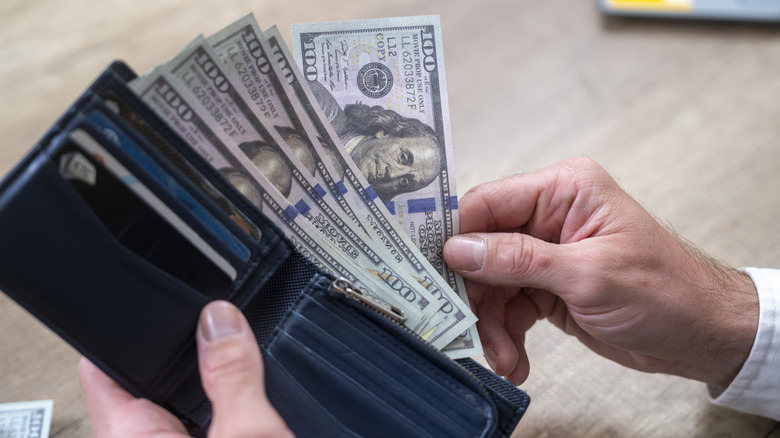You've Been Warned: Stop Believing These Myths When Buying A Car
Buying a car is a big step; you've budgeted, saved, and scrolled endless reviews to land on "the one." But along the way, everyone from your best friend to a viral TikTok guru will throw advice your way. Some of it helps, like knowing you're banned from buying a car on Sunday in these U.S states. However, some of this advice can simply be outdated dealer tricks dressed up as helpful tips — like strictly visiting a dealership at the end the month when dealers are racing to hit quotas and might bend on the price. A better alternative is to instead check the dealer's inventory for an excess of certain models — and then push on price with that knowledge in hand. Similarly, look for manufacturer incentives like cash-back offers and special financing, and watch for when they switch the model or year; when next year's cars roll in, last year's stock might carry more bargaining power.
Other myths like "service the car where you bought it" or that "car salespeople are dishonest" aren't always set in stone either. This is why it can be especially useful to follow automotive experts like Edmunds, Consumer Reports, and even industry watchdogs that have spent years tracking — and debunking — what works in today's automotive market. While there are a lot of myths to be wary of, two in particular could cost you a considerable amount of money.
The always pay cash myth
Don't be surprised if your dealer perks up when you say you want to finance your purchase. That's because they usually collect a bonus called a "dealer reserve" –or an extra 1-2% on top of the bank's loan rate. This is why handing over cash can backfire, as some shops will not negotiate vehicle price with cash-buyers due to the dealership's loss of extra income from financing. You can also try the "out-the-door price" technique in which you negotiate the total cost of vehicle, including fees and taxes, before discussing the payment method. This approach can keep the focus on the vehicle's actual cost, and not on how you'll pay. Once the price is set and agreed upon, you can decide whether to pay cash, use the dealer financing option, or bring a pre-approved loan from your bank or credit union.
Navigating your options can be tricky, but financially worth it. For example, if a dealer offers a 0% APR deal — meaning you're borrowing money to buy the car without paying any interest — financing can actually cost you less than the inflated price of paying cash up front. You can actually come out ahead, even after the dealer's cut. However, a dealer might offer a higher rate than your bank, meaning that paying cash or using an outside loan is better. The trick is to nail down the right sale price before discussing payment.
The dealer financing is a rip-off myth
Some buyers assume dealer financing is inherently bad. However, this notion ignores a key detail, which is that manufacturers often offer subsidize interest rates as low as 0% to 2% for qualified buyers. These promotions are more common when purchasing a new car and can beat private bank or credit union loans. However, the truth remains that most dealerships rarely lead with their best offer — and often include sneaky ways to cost you more money — meaning initial costs can include markups meant to boost their profits, especially if they sense you haven't shopped around or that you're indecisive.
This is why it can pay to lock in a pre-approved loan with your bank or credit union before arriving at a dealership. That way you have a specific rate for a dealership to beat. Dealers work with many lenders, including manufacturer programs, and they can often swing lower APR offers. So give them a chance to match or beat your bank's terms. Also, when the dealer inevitably counter, ignore the monthly payment and instead zero in on the APR offered. Dealers love to stretch out loan terms — say, 72 months instead of 60 — to make monthly payment amounts look friendlier, but that extra time racks up more interest and ultimately ends up costing you more. This also means the monthly payment amount can serve as a distraction. Focus on the APR for ensure a better overall rate.


